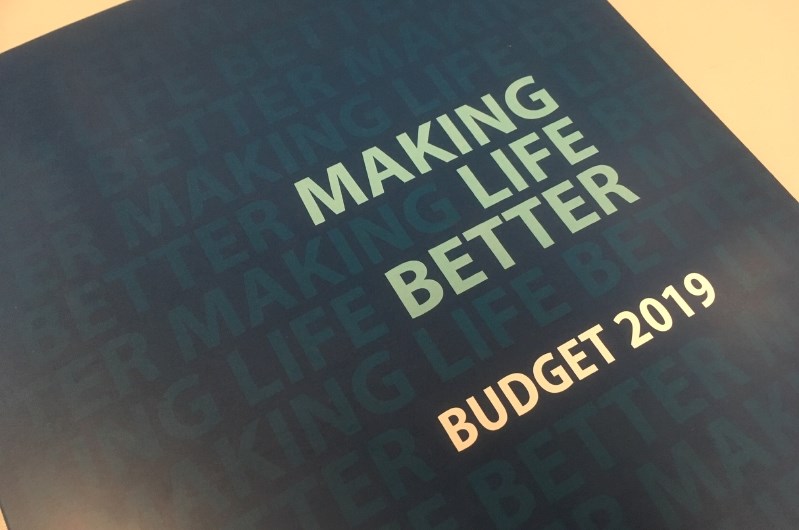Odds and ends from Tuesday’s provincial budget:
Here’s a sobering thought as governments grapple with the cost of climate change: The extra money spent on floods and wildfires last year accounted for almost two per cent of the entire provincial budget.
The Forests Ministry’s firefighting costs were $551 million over budget. Extra emergency program costs associated with floods and wildfires added $308 million. That’s a combined overrun of $859 million.
That last number was higher than the combined operating budgets of eight ministries: Environment; Energy; Labour; Agriculture; Indigenous Relations and Reconciliation; Jobs, Trade and Technology; Mental Health and Addictions; and Tourism, Arts and Culture.
Last year’s firefighting budget was supposed to be $64 million. It jumps to $101 million this year. Hope that’s enough.
–
B.C. ranks in various spots depending on family makeup in the interprovincial comparison of tax rates. After the 2019 budget, there is one category where it comes out on top in terms of low taxes. For all the emphasis on helping low-income earners and the middle class, a relatively affluent earner still comes out ahead in B.C.
For an unattached individual making $80,000 a year, B.C. has the lowest overall tax rate in Canada, according to a table in the budget and fiscal plan.
Counting all provincial direct taxes plus federal income tax, people in that bracket will pay $18,483 this year. Alberta is the next-lowest, at $19,629.
They would pay the most in Quebec — $26,728.
–
Carole James’s budget emphasizes help for the disadvantaged. That might leave Harry and Hermione Homeowner hard-pressed to find an item just for them.
Here’s something they can seize on, though: Energy-saving retrofits. People can receive:
• $2,000 to replace oil, propane or natural gas heating systems with an electric air-source heat pump
• Up to $1,000 for windows and doors that are more energy efficient
• Up to $700 for a highest-efficiency natural gas furnace
–
For renters, James allocated $10 million to establish the “first-ever provincial program to fund rent banks in B.C.’s history.”
The program will provide quick loans for small amounts to tenants having trouble making their next rent payment.
“This means that renters on the brink of eviction will be able to get an immediate short-term loan because no one benefits when families are thrown out onto the street,” James said.
Details will be unveiled in a few weeks, but the program is expected to be a partnership between the province, community organizations and financial institutions.
–
If you were waiting for a big funding announcement for the Royal B.C. Museum, keep waiting.
The project did get a brief mention in budget documents, but only in a we’ll-get-to-it-later kind of way: “ … government is planning for a capital project to modernize and renew the Royal B.C. Museum.” No dollar figure, no timeline.
Planning for the redevelopment of the museum is just beginning. “We expect that could be a good year, perhaps longer,” James said. “Then we’ll have to look at what kind of money is available.”
The museum holds seven million artifacts in 10 buildings. Most of the latter date to 1967 and are seen as susceptible to earthquakes or floods.
–
While reporters were locked up with budget documents Tuesday morning, MLAs convened for a regular morning session where Liberal MLA Mike de Jong’s 25th anniversary as an MLA for Abbotsford West was marked.
NDP government house leader Mike Farnworth delivered a philosophical shot. “Twenty-five years is a long time. ... Life comes full circle. He started his career on the opposition benches, and it’s nice to see him still on the opposition benches.”
–
There was much back-slapping about this being a balanced budget, which is true when you’re just looking at this year’s operating budget.
That doesn’t account for capital spending, though, or the accumulated debt from previous years. Add it all together — capital spending, taxpayer-supported debt and the self-supported debt of the likes of B.C. Hydro — and a different picture emerges.
Bottom line: B.C.’s total debt will climb from $67.9 billion this year to $81.4 billion three years from now.



